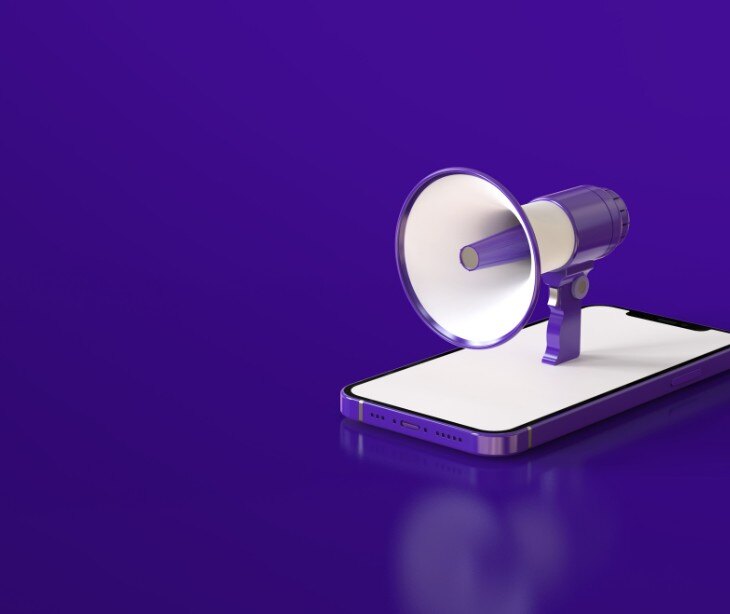3 min read
How personalized emails can help combat gambling addiction
Caitlin Anthoney April 3, 2024

Gambling addiction is a complex disorder characterized by a compulsive urge to gamble, which could lead to financial ruin, strained relationships, and profound psychological distress. Providers can use HIPAA compliant emails to provide personalized support by tailoring the content to address specific challenges and goals. This could help keep patients engaged and could lead to better outcomes.
According to the National Council on Problem Gaming, "2.5 million U.S. adults (1%) are estimated to meet the criteria for a severe gambling problem in a given year. Another 5-8 million (2-3%) would be considered to have mild or moderate gambling problems."
Email interventions are an effective way to reach individuals struggling with gambling addiction. These interventions provide support, resources, and guidance to help individuals make positive changes in their behavior.
Internet-based interventions for youth dealing with gambling problems suggest "tailored emails that provide personalized feedback, relevant cognitive and behavioral strategies and promote self-efficacy."
How can email interventions help combat gambling addiction?
Accessibility
With 9 out of 10 Americans owning a smartphone, emails can reach individuals at home, work, or even on-the-go. So, someone struggling with gambling addiction could opt to receive email interventions at any time. These interventions can be integrated into their daily routine without disrupting their commitments.
Patient privacy
Fear of stigma or judgment often deters individuals grappling with gambling addiction from seeking help. However, HIPAA compliant emails can help individuals access discreet support while safeguarding the confidentiality of their protected health information (PHI). Providers can use a secure platform, like Paubox, to send therapeutic content and offer support without compromising the patients' PHI.
In addition, providers can also offer email support alongside in-person therapy sessions. This will help reinforce therapeutic techniques and track progress. Bidirectional communication could also assist patients who need guidance during challenging moments.
Personalized support
Emails allow providers to send tailored content based on the individual's needs and progress. Providers can integrate their electronic health records to send automated HIPAA compliant emails. This personalized approach could help patients get relevant coping strategies, guidance, and encouragement. Personalized emails have also been shown to significantly increase open rates and click-through rates, leading to higher conversion rates and improved patient engagement.
Go deeper: How automated emails can increase patient satisfaction
Integrating cognitive behavioral therapy
Cognitive-behavioral therapy (CBT) is a proven approach for treating gambling addiction. More specifically, the Counselling Directory shows CBT to be "effective in treating gambling addiction by helping individuals identify and change negative thought patterns and behaviors."
CBT equips individuals with the tools to manage urges and make healthier choices by addressing the underlying cognitive distortions and maladaptive behaviors associated with gambling addiction. Additionally, CBT can also help individuals develop coping strategies to prevent relapse and maintain long-term recovery.
So, emails on CBT for gambling addiction may include information on identifying triggers, challenging irrational beliefs, and creating a relapse prevention plan. Additionally, CBT sessions may involve practicing mindfulness techniques to increase self-awareness and emotional regulation.
Read also: How text messages can improve cognitive-behavioral therapy (CBT) in individuals with depression
Progress tracking and accountability
Regular email check-ins can serve as progress trackers, prompting individuals to reflect on their gambling habits, successes, and setbacks. This accountability can motivate them to stay committed to their recovery journey.
For example, a therapist can email a patient to prompt them on their gambling habits, successes, and setbacks since their last session. The patient has enough time to respond thoughtfully and can acknowledge their victories, like resisting the urge to gamble or any slip-ups. These email check-ins could help patients self-assess their progress and identify behavioral patterns. Additionally, the therapist can provide resources or strategies to help the patient manage their urges and prevent relapse. This ongoing communication can also strengthen patient-centered communication and lead to better outcomes.
FAQs
What kinds of support do email interventions offer for gambling addiction?
Email interventions offer personalized support, cognitive-behavioral techniques, progress tracking, educational resources, and community connections to aid individuals in their recovery journey.
Are email interventions for gambling addiction suitable for everyone?
While email interventions can be beneficial for many individuals struggling with gambling addiction, they may not be suitable for those requiring intensive or immediate intervention, such as individuals with severe addiction or co-occurring mental health disorders.
Are email interventions for gambling addiction subject to HIPAA audits?
Yes, email interventions for gambling addiction are subject to HIPAA audits to ensure compliance with regulations governing the safety and security of users' protected health information (PHI) and privacy standards.
Subscribe to Paubox Weekly
Every Friday we bring you the most important news from Paubox. Our aim is to make you smarter, faster.




